Nasze prace
Our Works
Cristina Ferreira-Szwarc
20.05-5.06.22
Text: Wera Bet
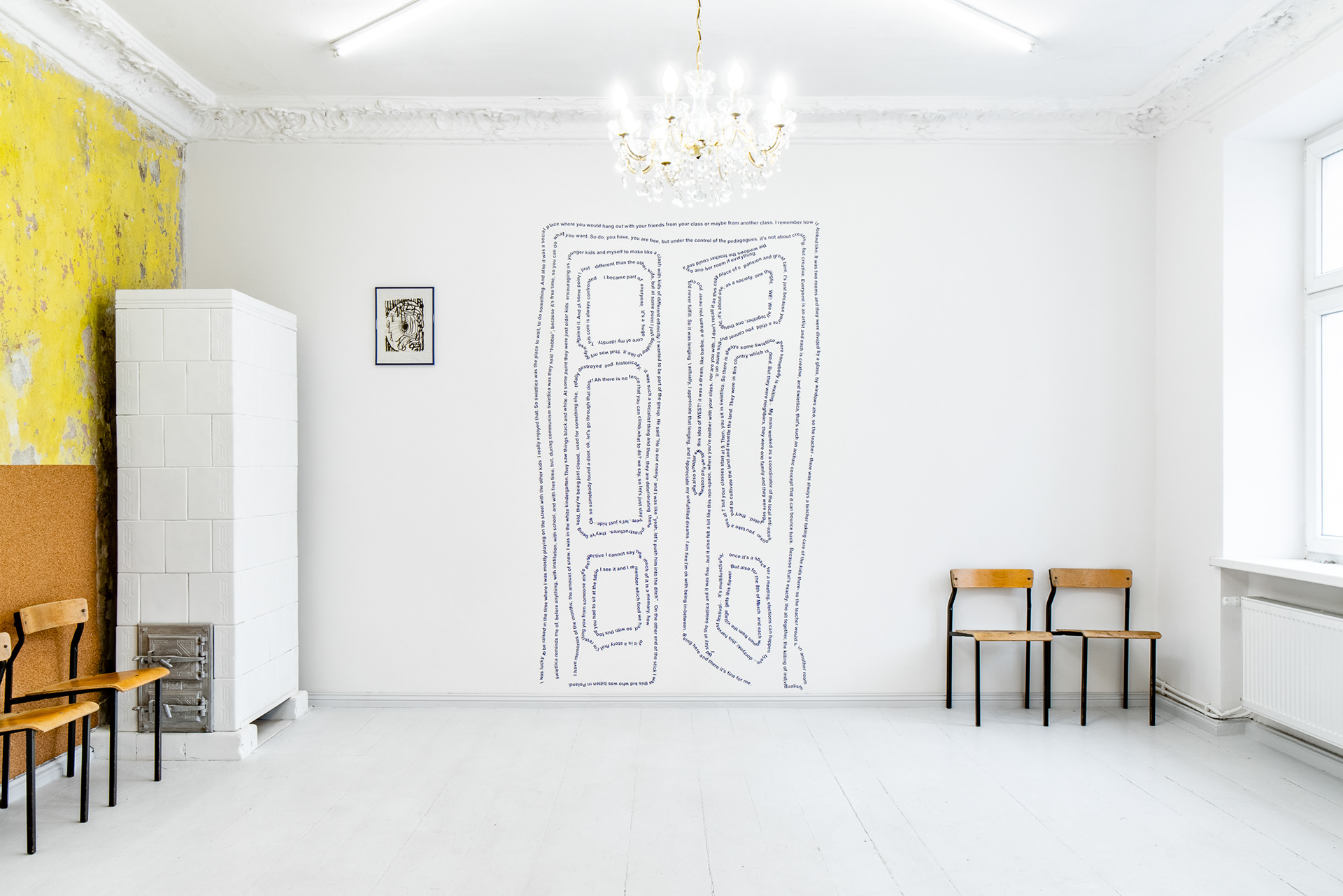
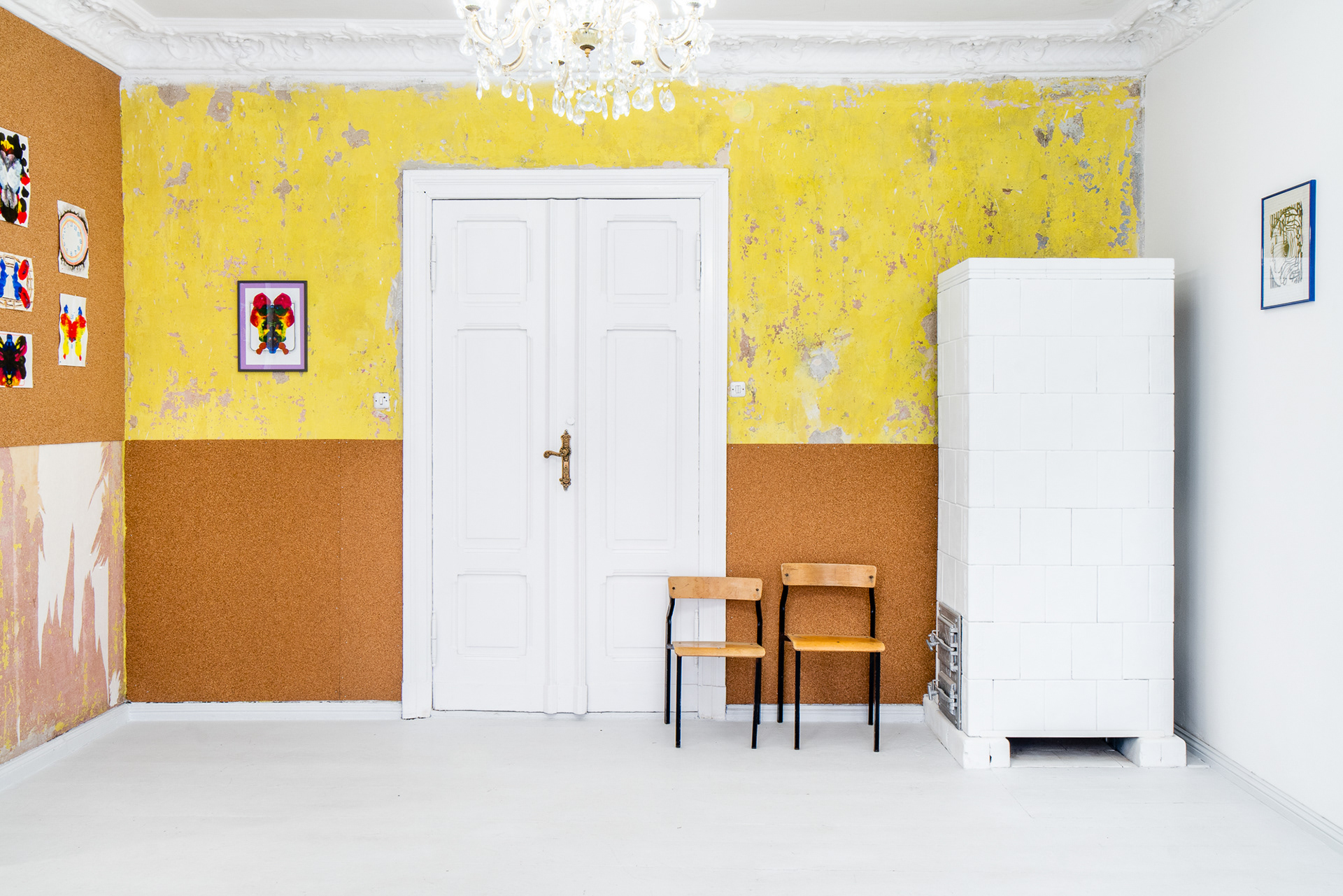
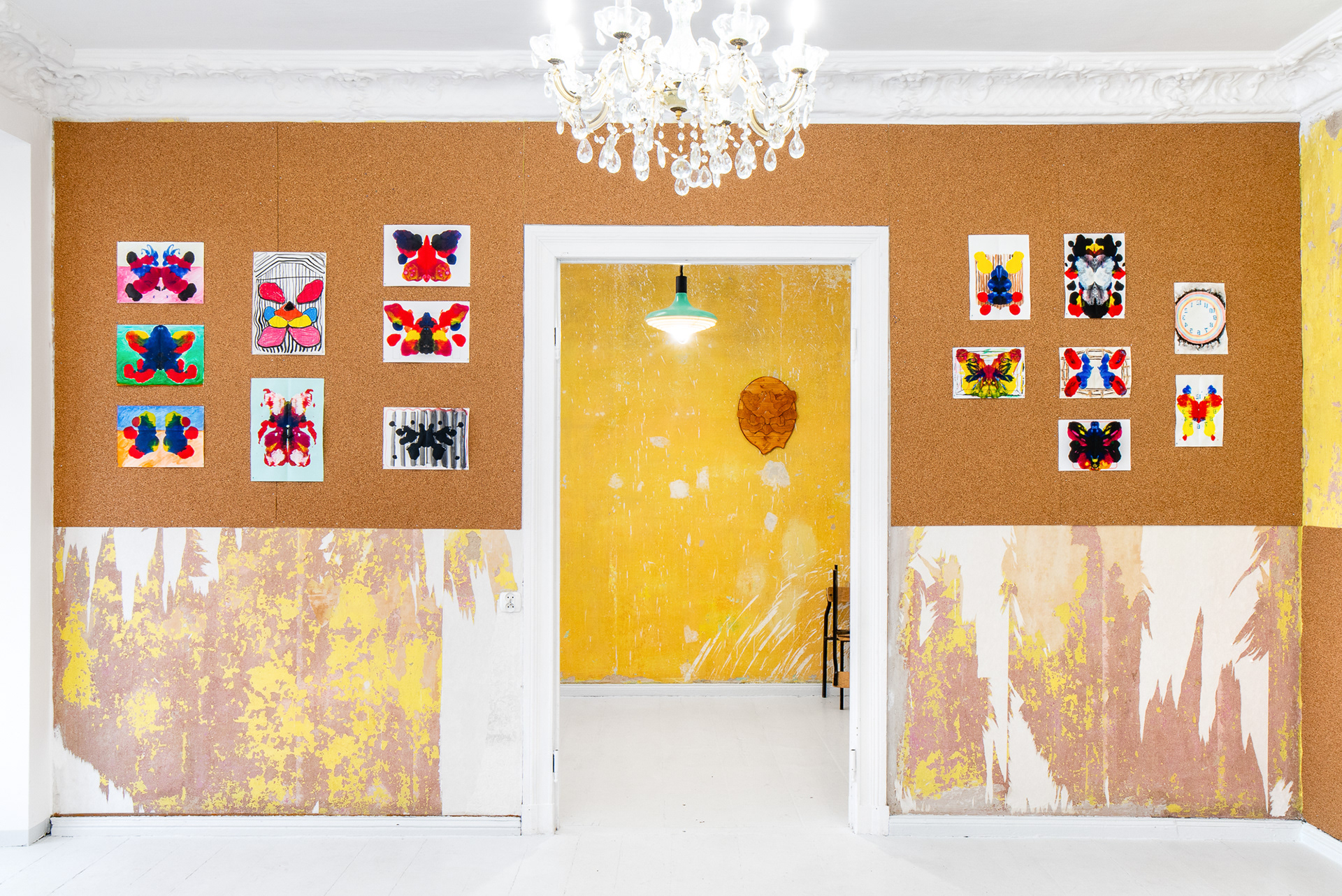
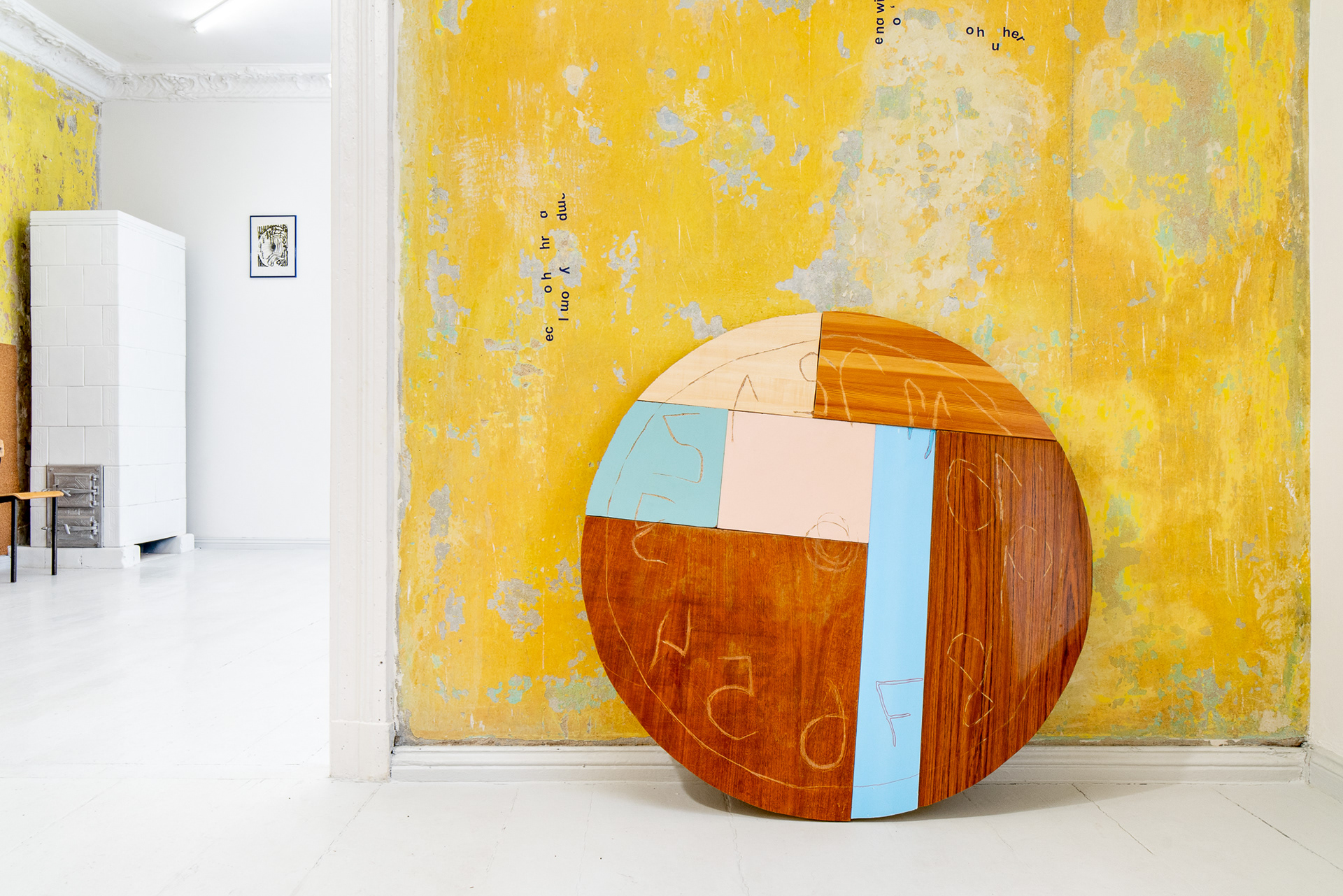
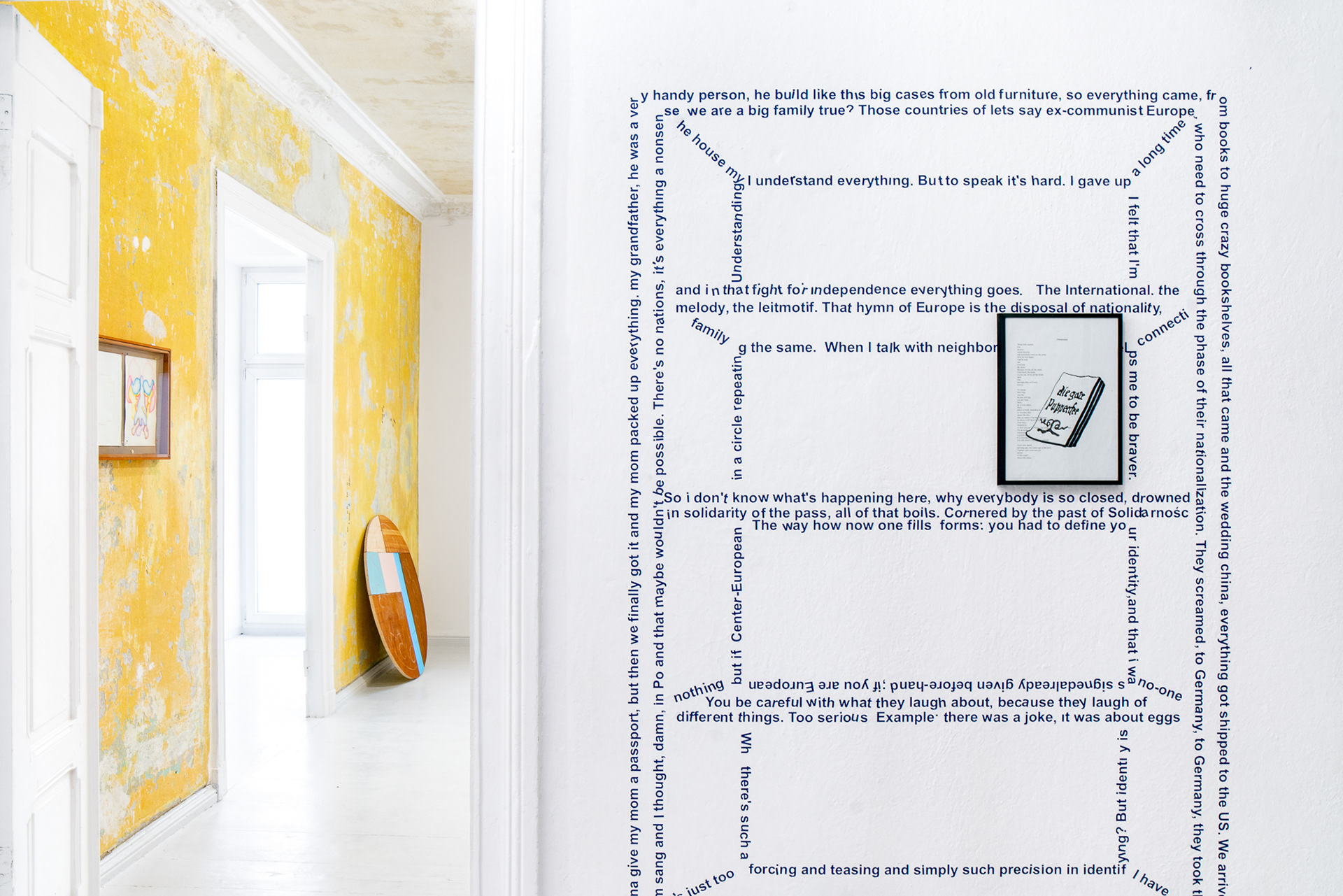
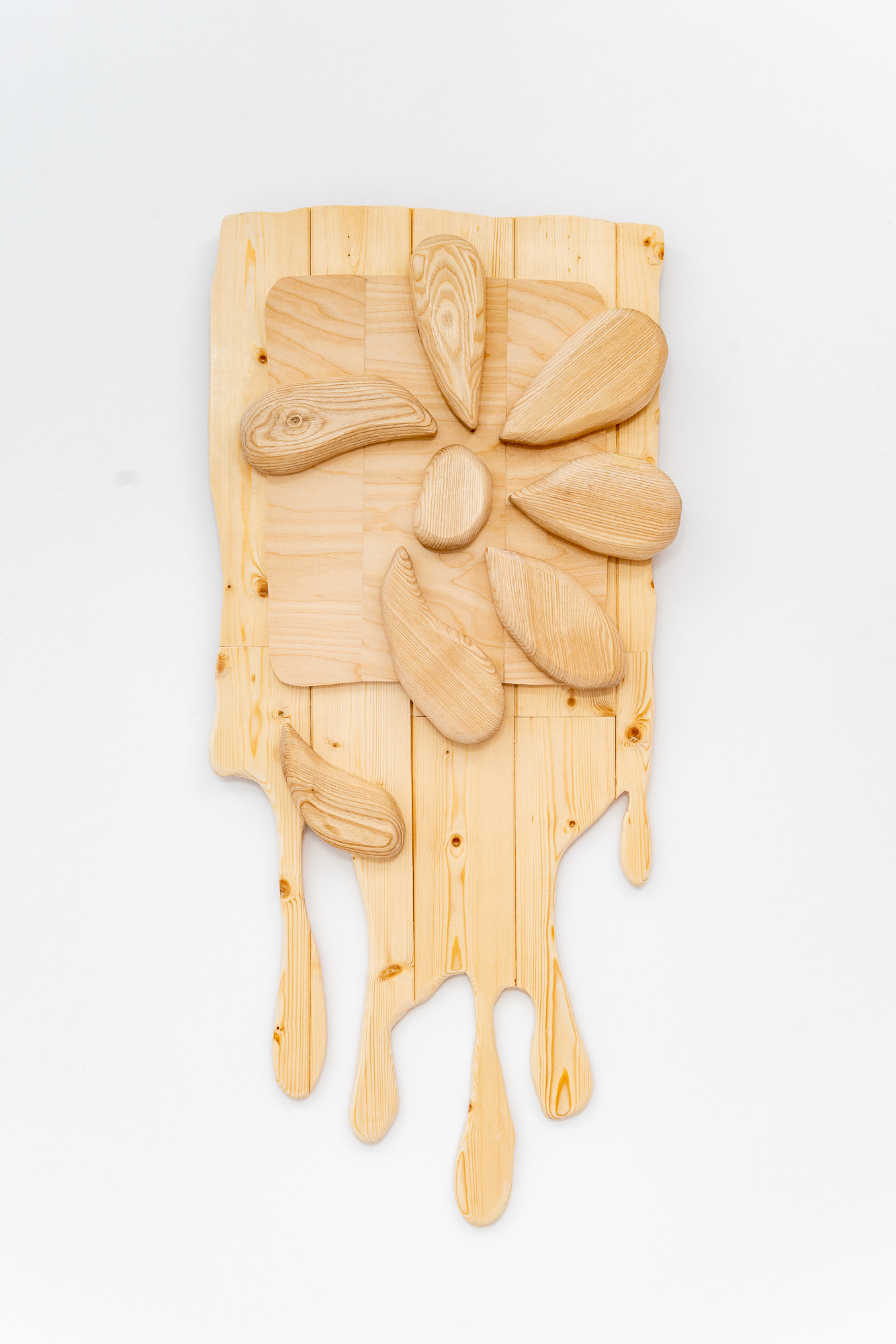
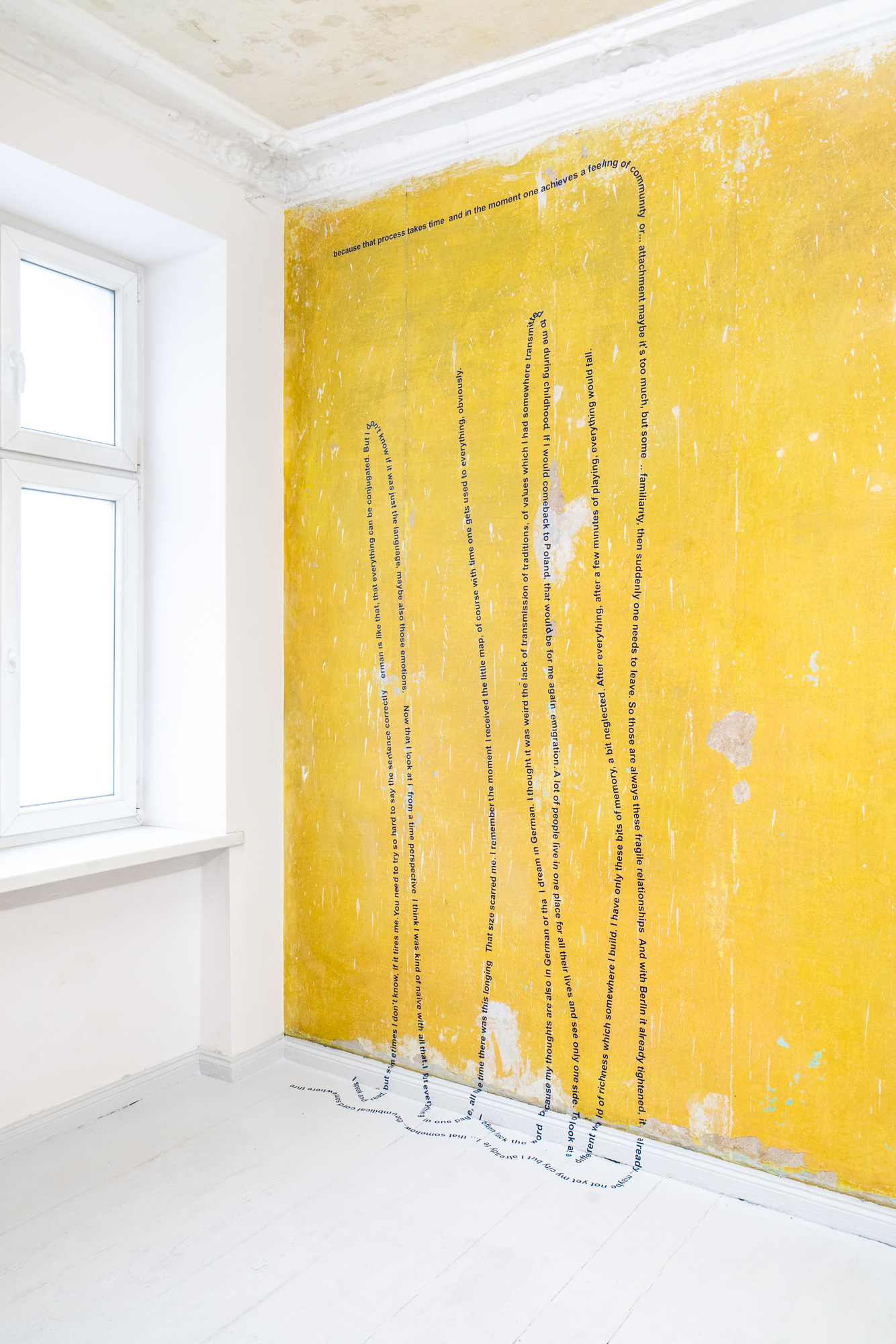
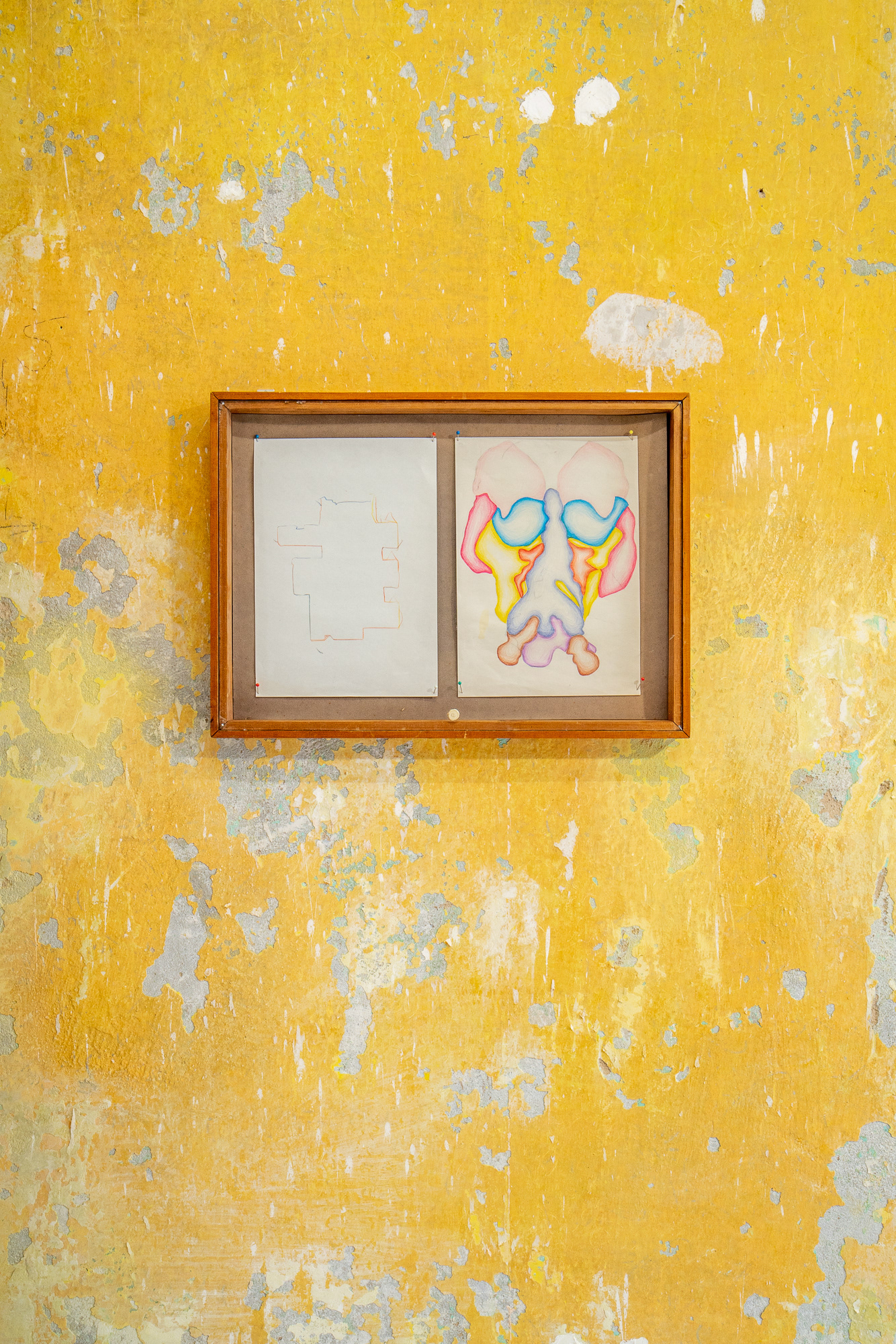
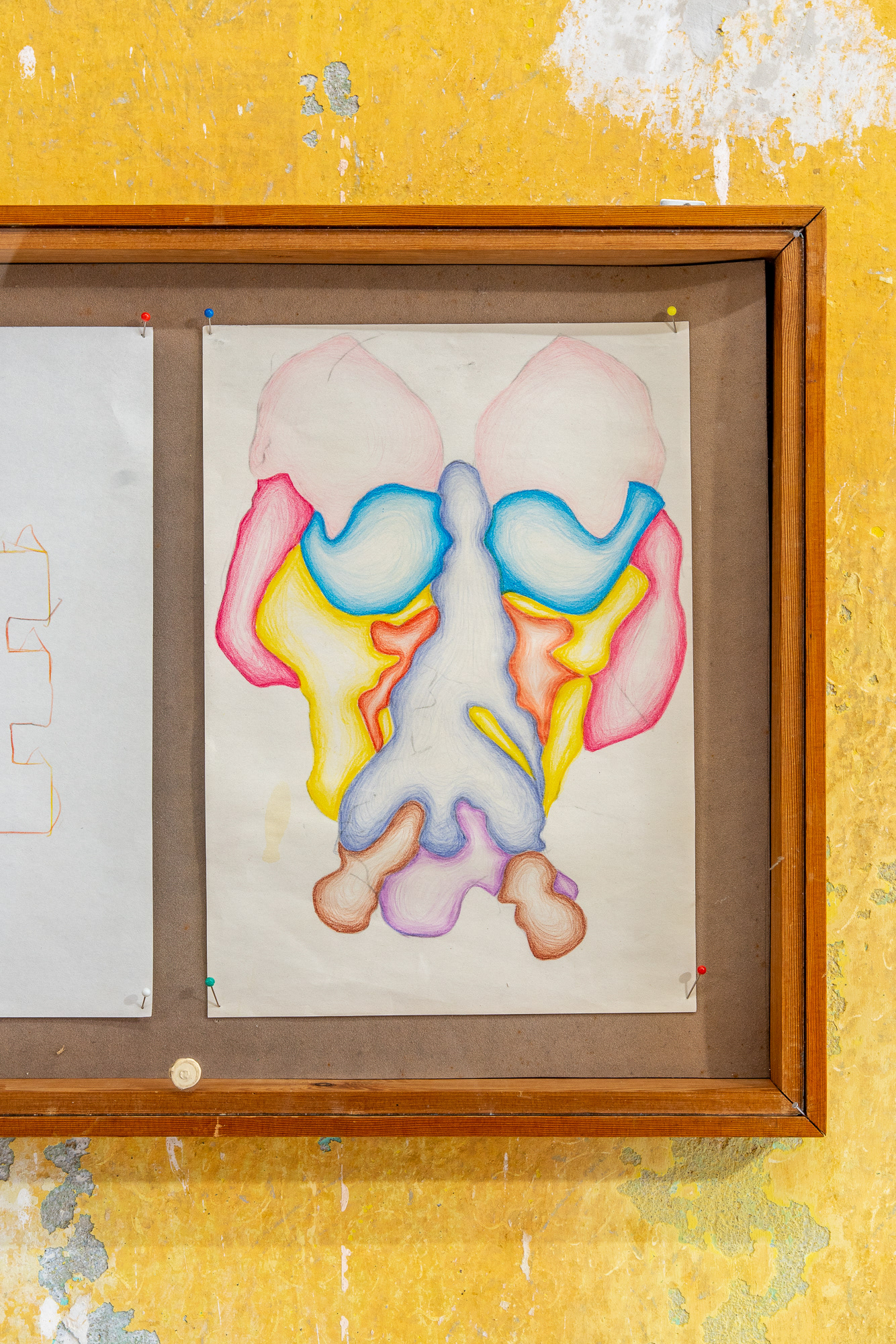
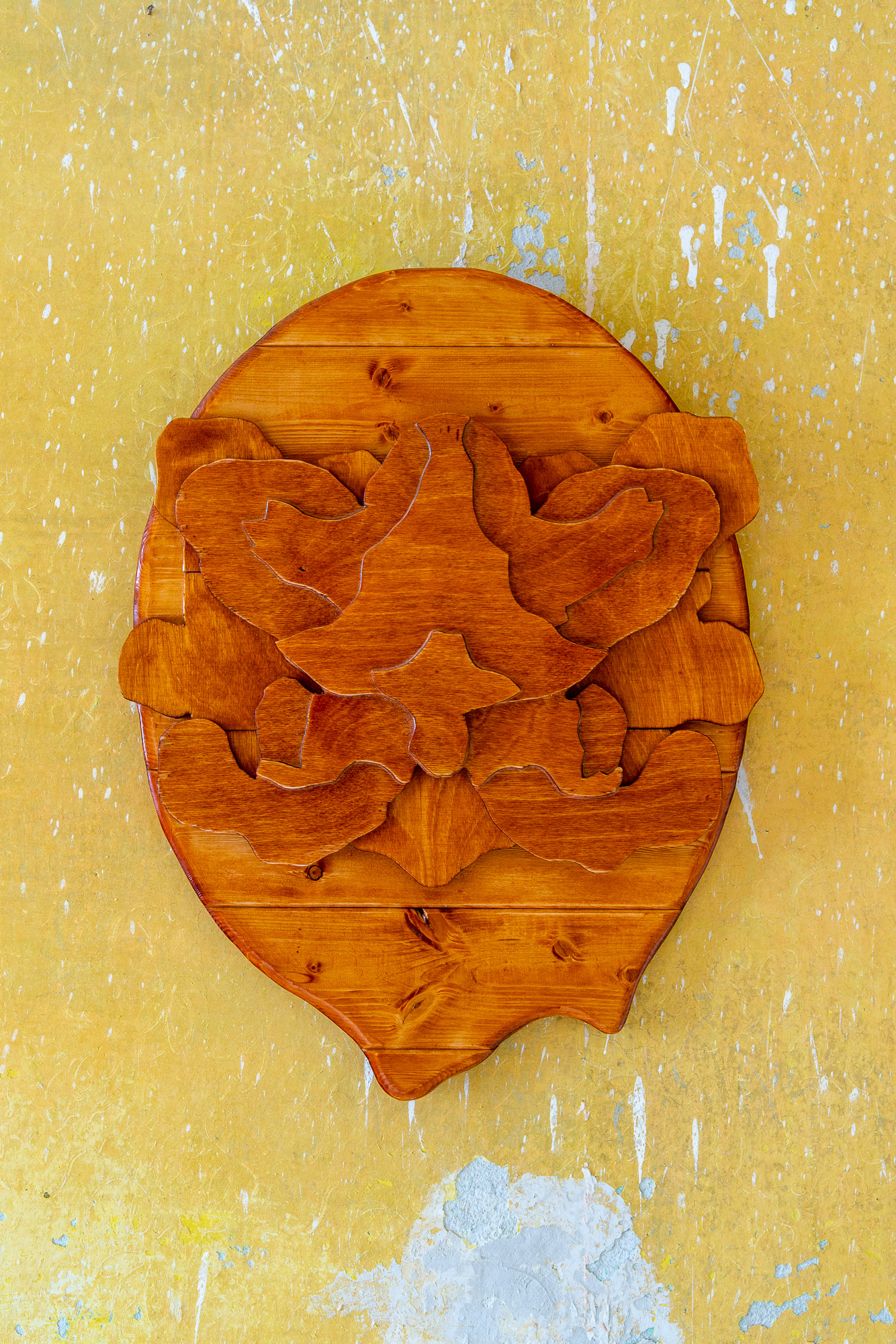
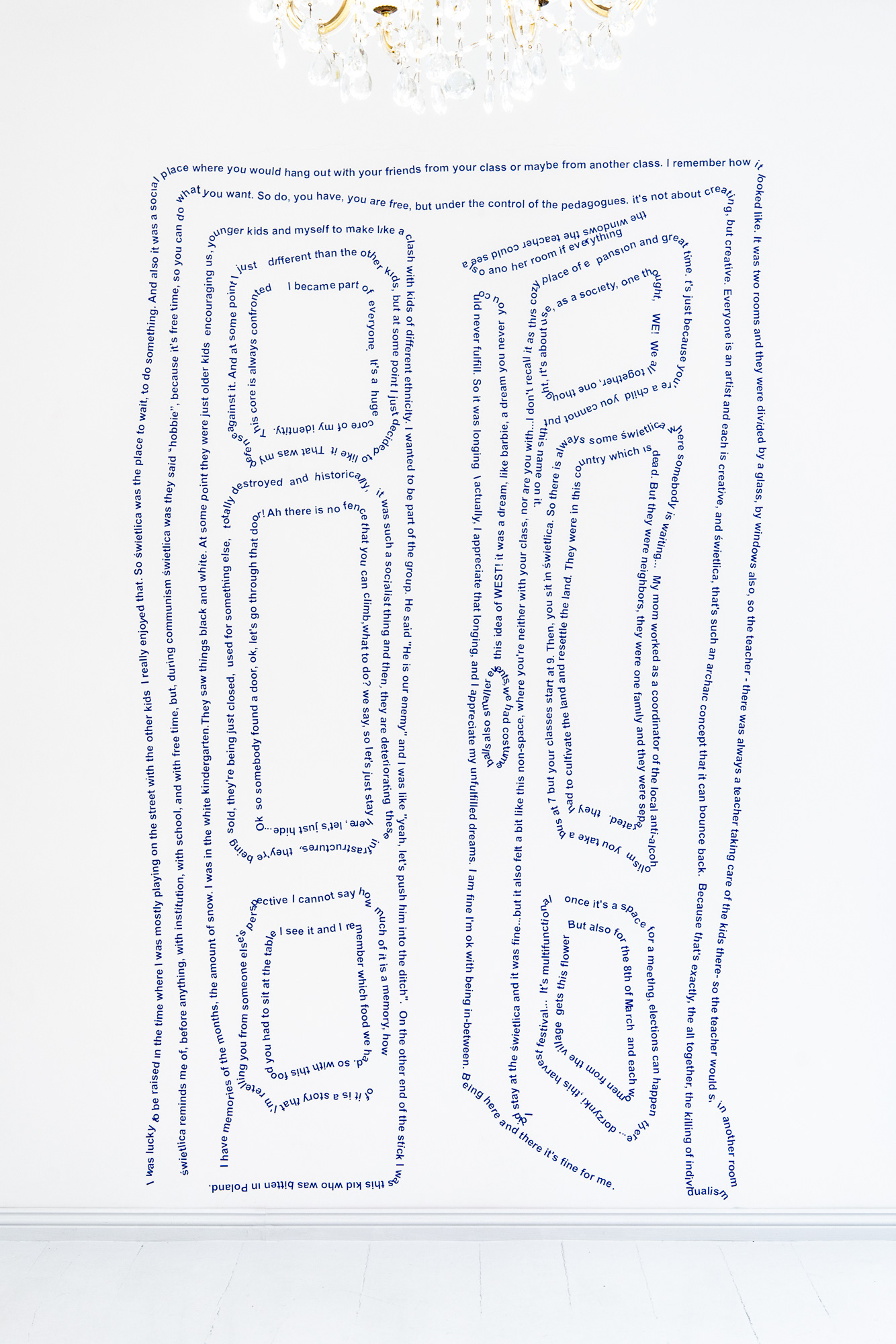
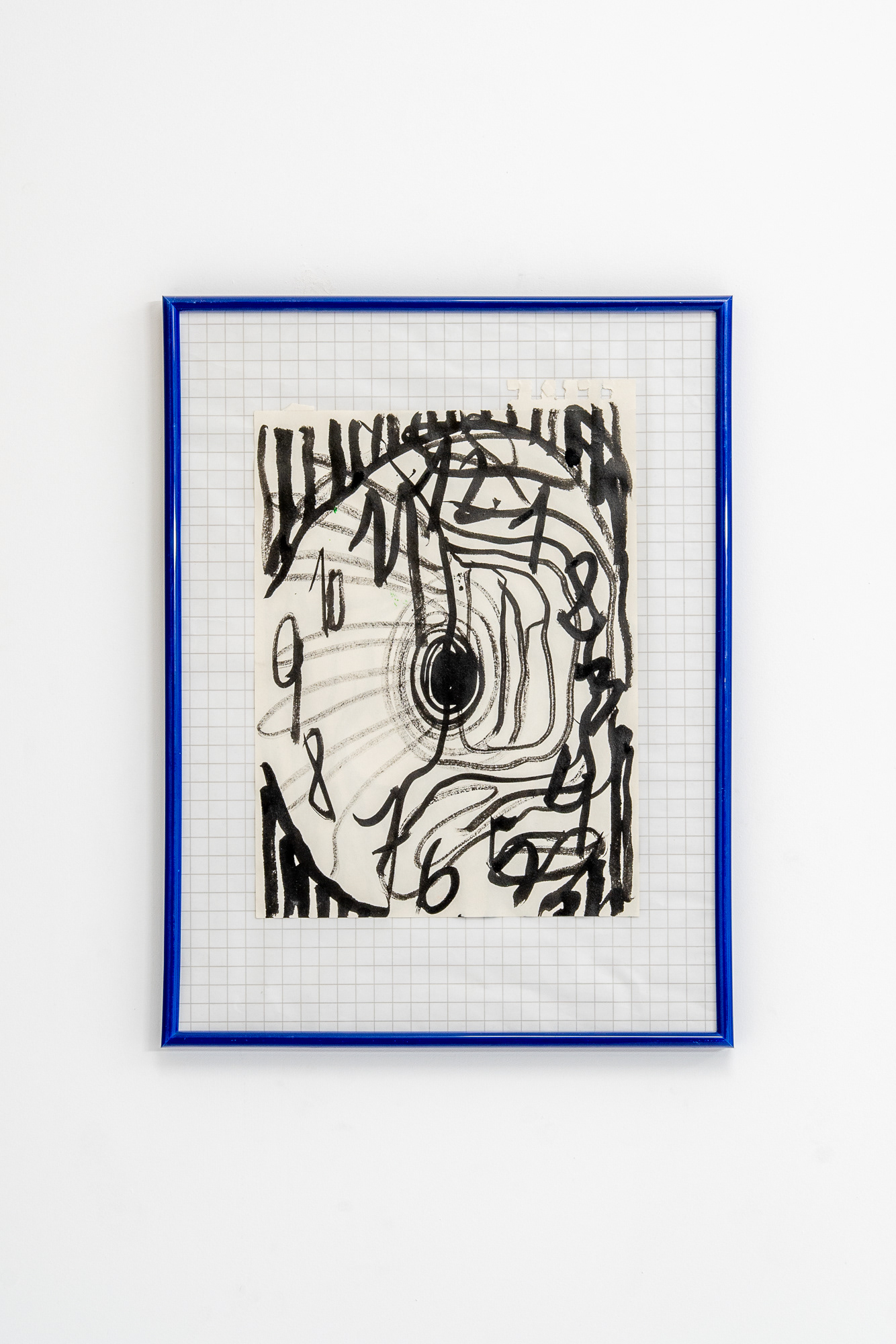
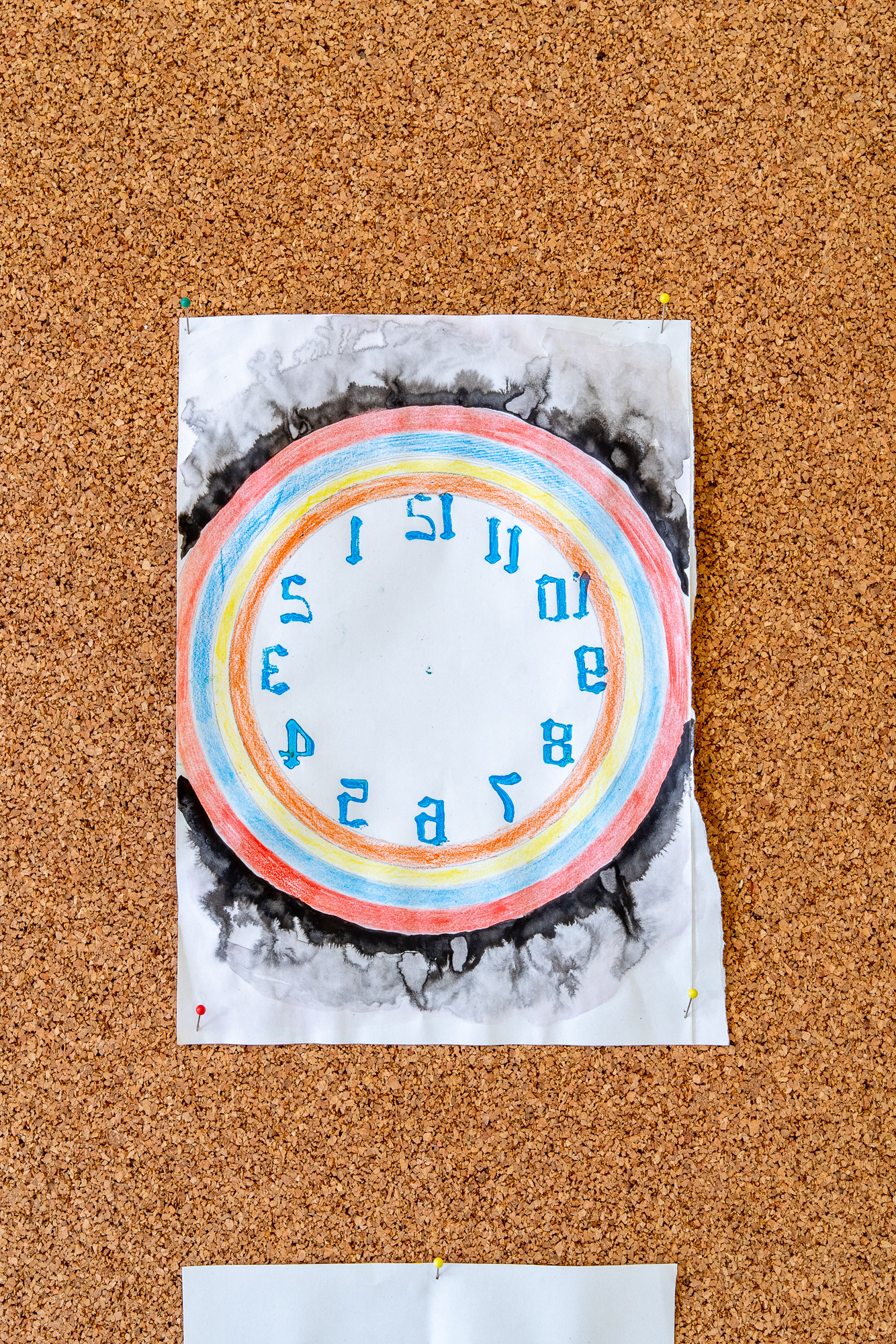
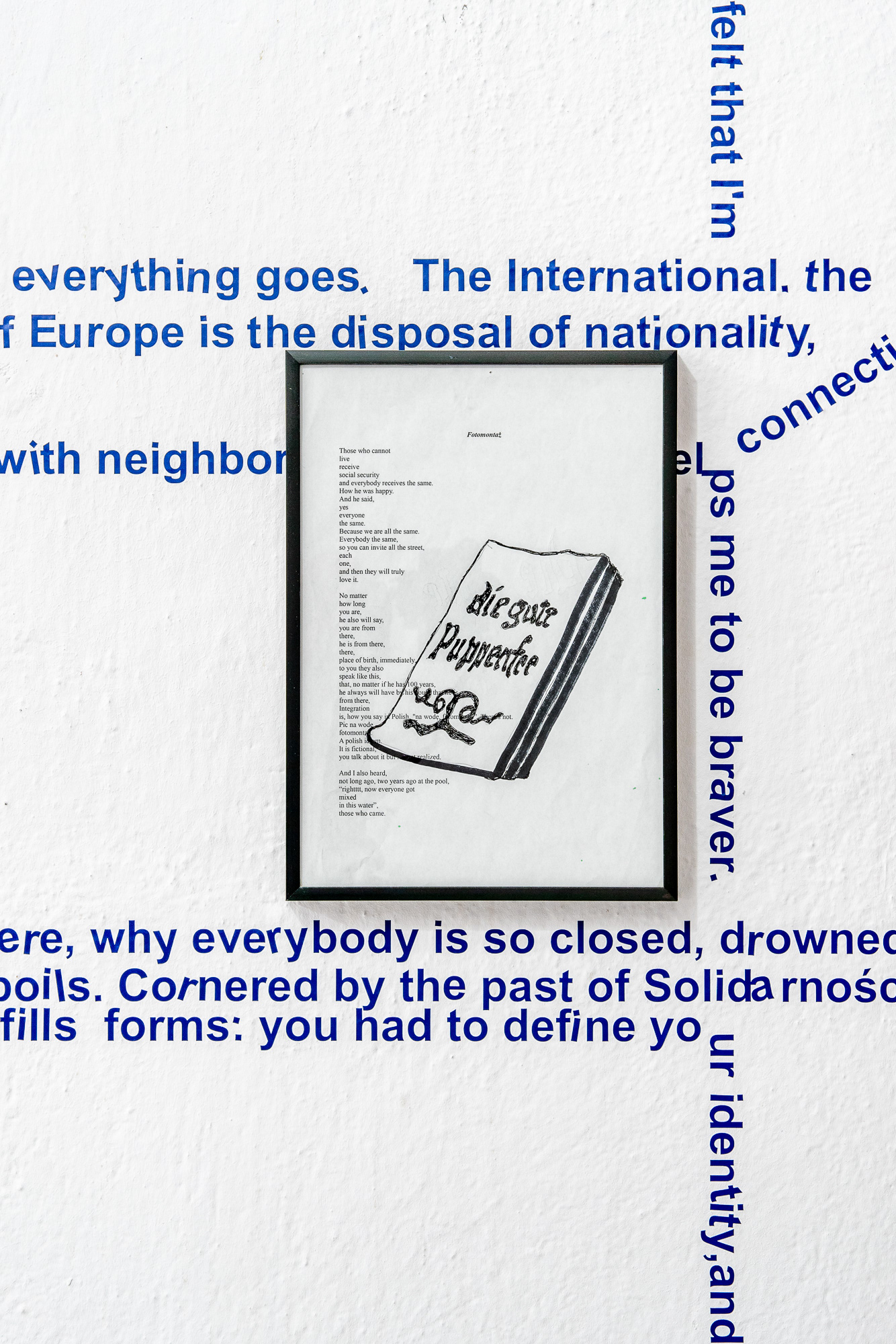
Te nasze wędrówki po świecie, te krainy i peryferie są „nie tylko po [to], aby się zachwycać naskórkową urodą świata, takim doraźnym blichtrem. Ale po to, aby zobaczyć, że piękno jest często niejednoznaczne, że wyraża się także przez rzeczy kalekie czy zdruzgotane. To raz. A po drugie: ma swój wymiar duchowy. Tożsamość to nie tylko moje biologiczne istnienie – ale rzeczywistość, którą można nazwać wspólnotą losu i wspólnotą odpowiedzialności za ten los. Odpowiedzialności, która nie jest tylko odpowiedzialnością za siebie samego”[1].
Jesteśmy w świetlicy. Każda z czterech ścian jest podporą dla drugiej. Ściana wspiera drzwi, regał wspiera ścianę. Wycackane, wymuskane jest to wnętrze. Tu zegar, tam pinezka, a tam kwiat – to wszystko razem tworzy tę opętaną krainę, gdzie rządy sprawuje estetyka pozoru – trwająca i przemijająca – krainę wzniosłej marności.
Our journeys around the world, through its lands and peripheries – they are "not meant to admire the epidermal beauty of the world, some temporary glitz. They let us see that beauty is often ambiguous, that it also expresses itself through crippled or broken things. Moreover, it also has its spiritual dimension. Identity is not only a biological existence – but a reality that can be called a community of fate and a community of responsibility for this fate. Responsibility that is not only a responsibility for oneself" [1].
We are in the common room. Each of the four walls supports the other. The wall supports the door and the bookcase supports the wall. This interior is sleek and fanciful. A clock here, a pushpin there, and a flower on the side – all of this together create this possessed land, ruled by the aesthetics of pretense – lasting and passing – a land of sublime vanity.
[1] Zbigniew Mikołejko, Jak błądzić skutecznie – prof. Zbigniew Mikołejko w rozmowie z Dorotą Kowalską, Warszawa 2013, s. 296.
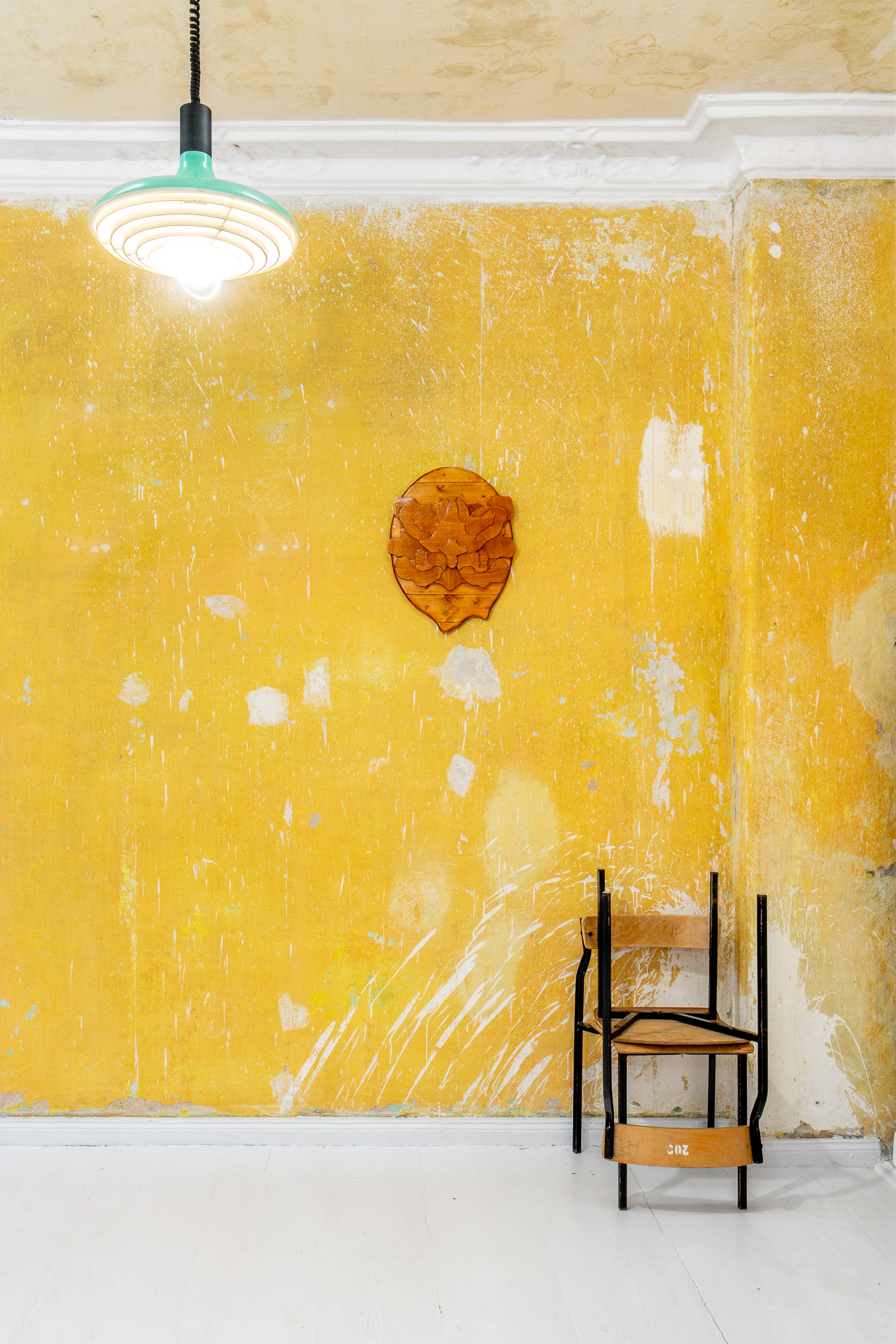
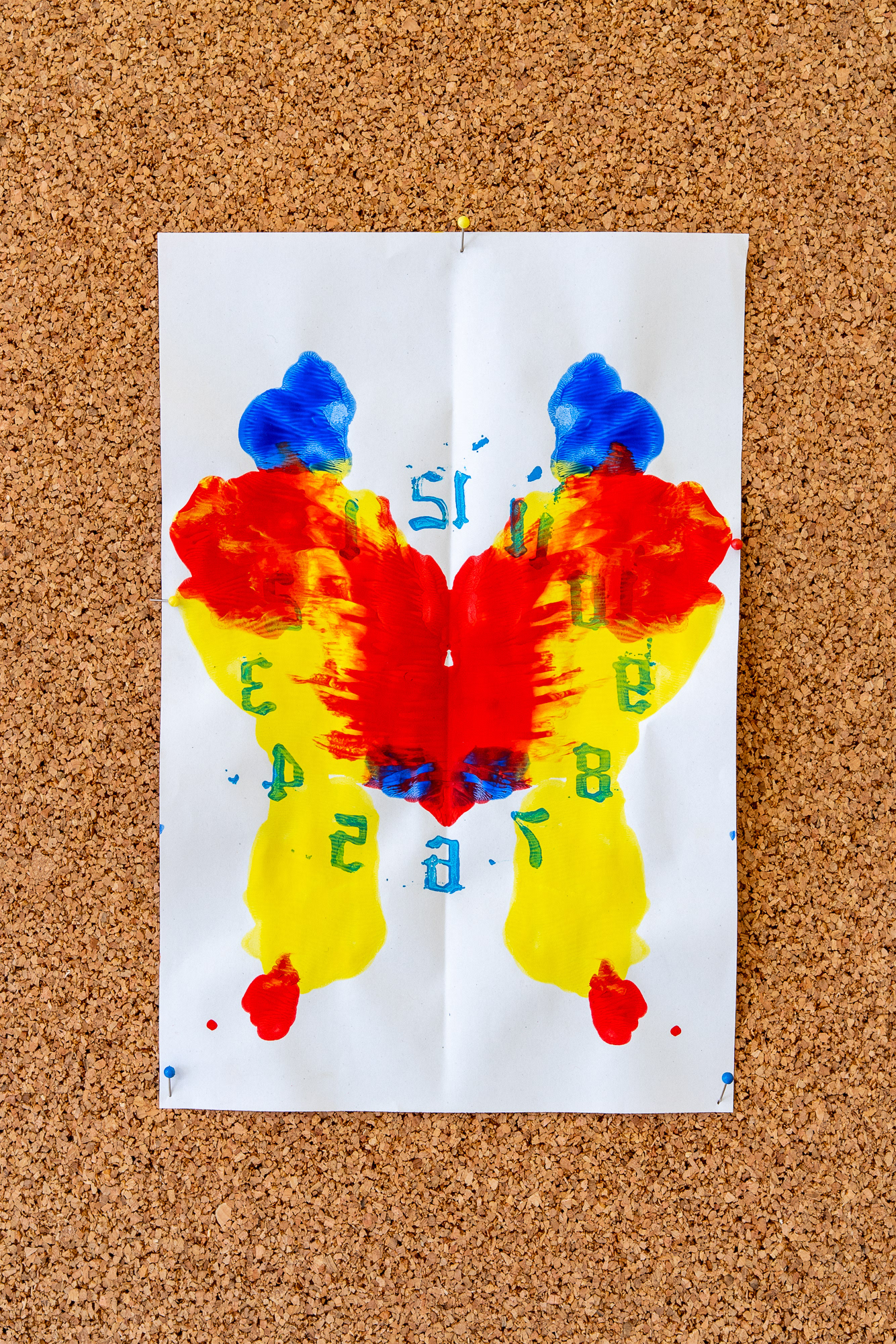
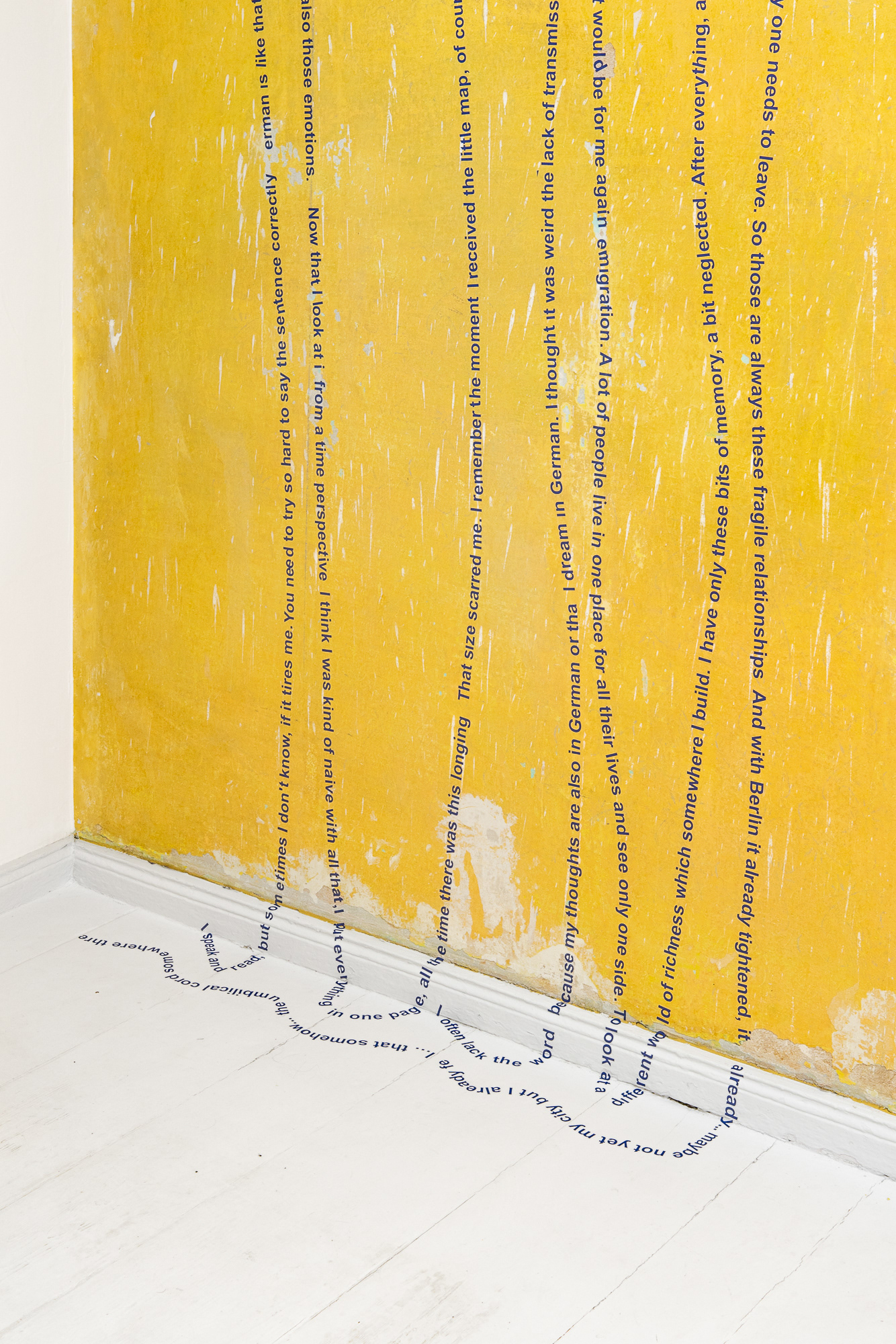
Firana pokryta warstwą kurzu ciężko zwisa z żyrandola – to punkt graniczny między światem zewnętrznym a światem świetlicy. Jej wnętrze jest chwilowym przystankiem w tej wędrówce, może nawet rodzajem odroczenia. To jedno z tych miejsc szczęśliwych, choć tymczasowych; trudnych, edukacyjnych – miejsc sprawczych; takich, co wypluwają, odtrącają, przytulają w świat. Świetlica – z jej suwerenną logiką i historią, z jej autonomicznym doświadczeniem i specyficzną urodą – konstytuuje świat jako sakralne wspomnienie – paskudnie-idylliczne. Jej pluralizm stanowi niespójny konglomerat radykalnie odmiennych jakości.
A dust-covered curtain hangs heavily from the chandelier – this is the border between the outside world and the world of the common room. Its interior is a temporary pause in this journey, perhaps even a kind of postponement. It is one of those places: happy though temporary, difficult, educational – causative places; ones that spit us out, throw us away or embrace before sending us out into the world. The common room – with its sovereign logic and history, with its autonomous experience and specific beauty – constitutes the world as a sacred memory – ugly-idyllic. Its pluralism is an incoherent conglomerate of radically different qualities.
Los chciał, że trafiliśmy do tej świetlicy. Wyrwani i wykorzenieni – jak przybłędy losu wrzuceni tam, gdzie nie ma idealnych mechanizmów aklimatyzacyjnych. Dzielimy tę samą udrękę, współodczuwamy. Twoje szczęście staje się moim. Uczucia rozprzestrzeniają się – jak ziewanie. Uczucia, tak jak ziewanie, są zaraźliwe. Z jednego kąta świetlicy ktoś ziewa, by z innego ktoś odpowiedział tym samym. A człowiek – zwierzę społeczne – polega na innych, aby stać się sobą, aby siebie stworzyć. Zarażamy się nawzajem i nawzajem za siebie odpowiadamy. A te cztery ściany – ten pokój – przysposabiają nas do rozpędu w świat.
Fate wanted us to come to this common room. Uprooted, eradicated, we’re like strays thrown by this fate in a place where there are no perfect acclimatization mechanisms. We share the same torment, we empathize. Your happiness becomes mine. Feelings spread like a yawn. Feelings, like yawning, are contagious. Someone yawns from one corner of the lounge, for someone else to answer the same from the other end. And human – the social animal – relies on others to become oneself, to create themselves. We infect each other and are responsible for each other. And these four walls – this room – prepare us for the leap into the world.
Tekst: Wera Bet



